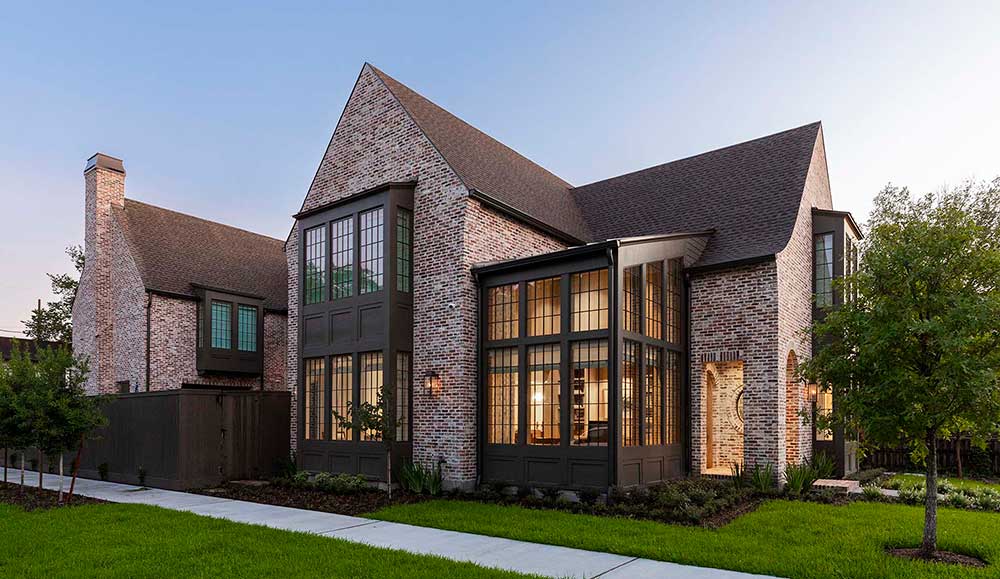
Michigan winters test every home's defenses, and windows are often the first to fail. If you’ve noticed water droplets, ice formation, or pooling moisture on your window sills each winter, you’re dealing with winter window condensation—one of the state’s most common (and most fixable) home performance issues. Window condensation isn’t just unsightly; it signals wasted energy, potential mold growth, and structural damage that compounds over time.
The good news? Solutions range from simple DIY fixes costing under $20 to comprehensive window replacements that slash heating bills by 25%.
This guide breaks down exactly what causes Michigan window condensation, how to fix it at any budget level, and when professional intervention becomes necessary.
Window condensation occurs when warm, humid indoor air meets cold glass surfaces. Michigan's harsh winters create temperature differentials of 50-70°F between indoor and outdoor environments, making condensation nearly inevitable with older windows.
The foundation is humidity control Michigan homeowners can maintain year-round: keep indoor RH at 30–40%, use exhaust fans during cooking and bathing, ensure proper ventilation, and add cellular shades that increase R-value by 2.0–5.0. This combination can reduce annual heating costs by 15–25%.
| Method | Cost Range | Michigan Performance | Key Benefit |
| Cellular Shades | $50-$300/window | +R-2.0 to 5.0, 15-25% heating reduction | Best DIY option |
| Storm Windows | $150-$400/window | Works toward U ≤0.30 | Affordable upgrade |
| Low-E Window Films | $3-$15/sq ft | Improve U-Factor 15-30% | Easy DIY installation |
| Triple-Pane Windows | $600-$1,200/window | U-Factor 0.20-0.30, CR 55-70 | Maximum efficiency |
Window selection directly determines condensation risk. Triple-pane windows with Low-E coatings and argon fill virtually eliminate condensation while meeting Michigan's Climate Zone 5A efficiency standards.
Window Performance For Michigan Climate Zone 5A:
| Window Type | U-Factor | CR Rating | Condensation Risk | Cost |
| Single-Pane | 0.90-1.20 | 15-25 | Very High | $100-$300 |
| Double-Pane (Low-E) | 0.30-0.40 | 45-55 | Moderate | $400-$700 |
| Triple-Pane (Low-E, Argon) | 0.20-0.30 | 55-70 | Low | $600-$1,200 |
Michigan Climate Zone 5A Standards: U-Factor ≤0.30 | CR ≥50 | SHGC 0.35-0.55 | VT ≥0.40 | Air Leakage ≤0.3
Triple-pane windows exceed Michigan requirements with CR ratings of 55-70 and U-Factors of 0.20-0.30. Combined with proper window treatments, they deliver 15-25% heating cost reductions and contribute to the Michigan Energy Code 2025's projected 4.7% energy savings. Higher upfront costs ($600-$1,200) are offset by long-term energy savings and condensation elimination.
Double-hung windows are common across Michigan, and their operable sashes can leak air if not tuned. Practical double-hung window tips include:
Most condensation issues can be resolved with simple DIY interventions. However, structural problems like seal failure or mold require professional expertise.
Enhanced insulation addresses the root cause of condensation by warming interior glass surfaces. Multiple solutions exist at various price points to meet different needs.
| Material | Performance | Cost | Best For |
| Cellular Shades | +R-2.0 to 5.0, 15-25% heating reduction | $50-$300/window | All Michigan homes |
| Window Film (Low-E) | Improves U-Factor 15-30% | $3-$15/sq ft | Existing windows |
| Spray Foam | R-6 to R-7 per inch | $1.50-$3.50/sq ft | Frame insulation |
| Storm Windows | Reduces overall U-Factor | $150-$400/window | Historic homes |
Storm windows offer a cost-effective middle ground at $150-$400 versus $600-$1,200 for replacement windows. They help achieve air leakage ≤0.3 standards, maintain historic appearances, and can be removed seasonally for flexibility.
Untreated condensation causes progressive damage that compounds over time. Early intervention prevents costly repairs and health hazards.
Potential Damage:
Window replacement eliminates condensation at its source while delivering substantial energy savings. Modern energy-efficient windows transform problem areas into high-performance assets.
Inspection Schedule: Check windows twice yearly (fall and spring) for water stains, fogging between panes, drafts, air leakage >0.3, and weatherstripping condition.
Window condensation is preventable through humidity control, proper insulation, and strategic upgrades, and Michigan homeowners should act now to capture 15-25% heating cost reductions while meeting Michigan Energy Code 2025 standards. Start the condensation on windows fix by maintaining 30-40% indoor humidity with dehumidifiers and exhaust fans, then add cellular shades for an R-2.0 to 5.0 insulation value. For existing windows, apply Low-E film to improve U-Factor by 15-30% or install storm windows ($150-$400).
When replacement becomes necessary, choose windows meeting U-Factor ≤0.30 and CR ≥50 standards, or invest in triple-pane windows (U-Factor 0.20-0.30, CR 55-70) for optimal performance that eliminates condensation entirely. Prompt action prevents costly mold remediation, structural damage, and heating bill waste while increasing property value and comfort.
Ready to eliminate window condensation for good? Contact Alexandria Home Solutions for a professional assessment and customized solution for your Michigan home.
